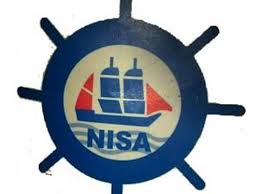The Nigerian Indigenous Shipowners Association, NISA has said that in contemplating the effectiveness of the Cabotage Act for Nigerian indigenous ship owners, it is imperative to adopt a multi-faceted approach to realize its full potential.
The President of the association, Otunba Sola Adewumi who made this assertion in a position paper he presented at the stakeholders roundtable engagement organized by the Ministry of Marine and Blue Economy in Lagos yesterday, maintained that the complete eradication of waivers under the Cabotage regime was crucial.
This action, Adewumi said, would significantly bolster the opportunities for Nigerian shipowners, fostering a more competitive environment that could lead to increased contracts and employment within the local maritime sector.
He further submitted that the Nigerian government should consider the establishment of a specialized maritime bank stating that “this institution would ideally offer financial assistance at single-digit interest rates, thereby providing a much needed impetus for growth and development in the maritime industry.”
The NISA boss also insisted that The Cabotage Vessel Financing Fund, CVFF must be effectively implemented for the Cabotage Act to realize its full potential. This fund, he argued, was pivotal in providing financial support to operators within the industry, thereby enhancing their capacity to compete more robustly on a global scale.
He reasoned that efficient ship building cannot be achieved without the commencement of the nation’s steel rolling mill. According to him, encouraging and promoting local shipbuilding can play a significant role in reducing costs for shipowners. This strategy, he insisted, would not only make ship acquisition more affordable but would also stimulate the local economy and technological development.
Continuing, Otunba Adewumi said, “The payment of port charges in local currency is a strategic move that can alleviate the financial burden on Nigerian shipowners, making their operations more economically viable.
“Investing in research and training is essential for capacity building within the maritime sector. This approach ensures that the workforce is skilled and knowledgeable, ready to meet the challenges and demands of a rapidly evolving global maritime industry.
“Granting national carrier status to Nigerian ship owners would provide them with preferential treatment in national and international trade, enhancing their competitiveness and visibility in the global maritime industry.
“Setting up an African Protection & Indemnity (P&I) club would be a strategic move. It would provide tailored insurance and risk management services that cater specifically to the unique needs of the African maritime sector.”
He, however, submitted that for Cabotage to truly be effective and achieve its intended goals, there must be strict enforcement of its provisions. This enforcement, according to him, would ensure that the benefits of the policy were realized, ultimately leading to the growth and development of the Nigerian maritime industry.
He, therefore, believed that the recommendations above, if strictly implemented, could dramatically transform the landscape of the Nigerian maritime sector, leading to economic growth, technological advancement, and enhanced global competitiveness for Nigerian shipowners.
Send your press invite, news, press releases/articles to augustinenwadinamuo@yahoo.com. Also, follow us on Twitter @PrimetimeRepor1 and on Facebook on facebook.com/primetimereporters or call the editor on 07030661526.

